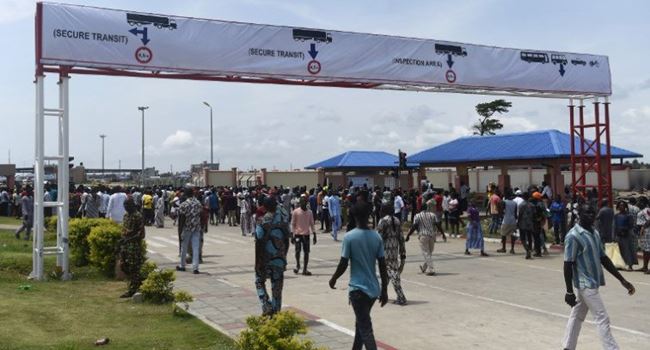Metro
Lagos sends 67 Togo returnees into quarantine

The Lagos State Government has reportedly sent about 67 persons, who attempted to enter the country through Seme border, into quarantine.
According to reports, security agencies at the border town on Sunday detained the 67 persons, who were coming from Togo, which handed them over to the Lagos State Government.
A security source at the Seme border said the 67 persons, who were mostly Nigerians, attempted to enter the country on Sunday despite the closure of land borders.
It was gathered that samples of the 67 people would be taken for COVID-19 test and that they would be quarantined in Badagry for 14 days.
Read also: COVID-19: Police arrests Cote D’ Ivoire returnee, cab driver in Delta
The source said: “The Lagos State Government has already got some hotel accommodation around Badagry. These people will be housed in hotels, which have no other guests. Their samples will be taken and they will be tested. They will be in quarantine for 14 days.
“Before the end of the 14 days, another test will be conducted on them. After 14 days, if they test negative for the virus, they will be allowed to go to their different destinations in the country. Anyone of them that tests positive will be moved to the Infectious Disease Hospital, Yaba for treatment.”
It would be recalled that President Muhammadu Buhari, had in his nationwide broadcast on March 29, ordered complete closure of land borders to human and vehicular traffic.
Join the conversation
Support Ripples Nigeria, hold up solutions journalism
Balanced, fearless journalism driven by data comes at huge financial costs.
As a media platform, we hold leadership accountable and will not trade the right to press freedom and free speech for a piece of cake.
If you like what we do, and are ready to uphold solutions journalism, kindly donate to the Ripples Nigeria cause.
Your support would help to ensure that citizens and institutions continue to have free access to credible and reliable information for societal development.
























